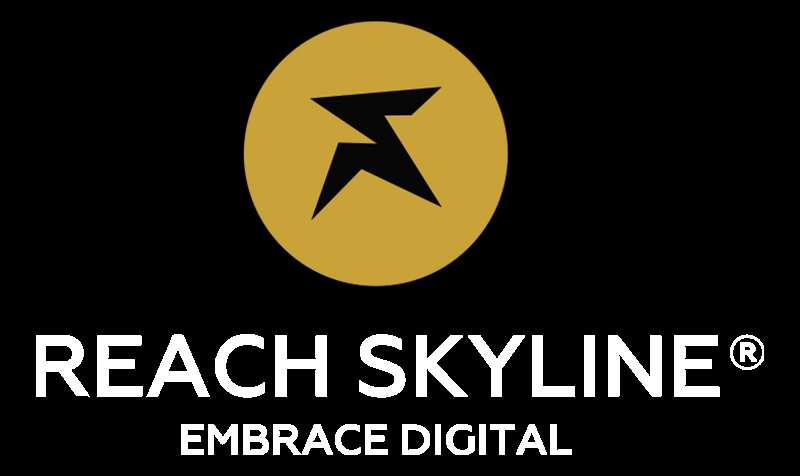In today’s interconnected world, businesses are no longer confined by geographical boundaries. Offshore Digital Marketing Services have emerged as a strategic solution for companies looking to expand their reach, optimize costs, and leverage global expertise. As competition intensifies, outsourcing marketing to specialized agencies in different parts of the world is proving to be a profitable and efficient choice. These services provide a holistic approach to digital branding, leveraging advanced tools and innovative strategies to maximize engagement and return on investment. The Growing Demand for Offshore Digital Marketing The global digital marketing industry is projected to reach $1.5 trillion by 2030, driven by the rapid adoption of online platforms and evolving consumer behaviors. The rise of e-commerce, social media marketing, and content-driven strategies has further accelerated the demand for professional marketing solutions. Small and medium-sized enterprises (SMEs) are increasingly turning to offshore marketing firms to access top-tier expertise at lower costs, ensuring they remain competitive in their respective industries. Companies in North America and Europe, where in-house digital marketing can be expensive, frequently collaborate with agencies in Asia, Eastern Europe, and Latin America to achieve high-quality results without excessive spending. These partnerships enable businesses to benefit from data-driven campaigns, audience segmentation, and targeted outreach that drive better engagement and conversion rates. Businesses that outsource digital marketing often experience faster turnaround times, as offshore teams operate in different time zones, enabling continuous work cycles. This efficiency allows brands to maintain an active online presence, engage audiences effectively, and drive conversions without delays. The ability to run 24/7 marketing campaigns across multiple regions further enhances global reach and brand visibility. Cost Efficiency and Scalability Access to a Diverse Talent Pool Offshore Digital Marketing firms provide access to skilled professionals specializing in search engine optimization (SEO), pay-per-click (PPC) advertising, content marketing, social media management, and analytics. These experts often bring a wealth of experience working with diverse industries, ensuring well-rounded strategies tailored to specific business needs. Countries like India, Ukraine, and the Philippines have established themselves as digital marketing hubs due to their strong educational systems and growing tech industries. The availability of multilingual professionals also allows brands to execute global campaigns efficiently, reaching audiences in different regions with culturally relevant messaging. This expertise ensures businesses achieve localized marketing success while maintaining a consistent brand identity across different markets. Leveraging Advanced Technology and Tools Staying ahead in digital marketing requires access to the latest tools and analytics platforms. Offshore agencies invest in cutting-edge software such as SEMrush, Ahrefs, HubSpot, and Google Analytics to optimize campaigns by providing in-depth keyword research, SEO performance tracking, and data-driven insights. These tools enable businesses to refine their strategies, enhance visibility, and maximize return on investment. By outsourcing, businesses can benefit from these advanced resources without having to purchase expensive subscriptions or allocate dedicated personnel for ongoing software management. Moreover, offshore agencies leverage customer relationship management (CRM) systems, marketing automation tools, and real-time analytics dashboards to streamline campaign execution and monitor performance. This ensures data-driven optimization, allowing brands to make agile adjustments and maximize their outreach. Artificial intelligence (AI) and automation are also transforming digital marketing, enabling personalized customer experiences, predictive analytics, and automated workflows. Offshore teams utilize AI-powered chatbots, intelligent content curation, and behavioral targeting algorithms to engage customers more effectively. These innovations enhance audience segmentation, allowing businesses to reach the right customers at the right time with tailored messages that drive engagement and conversions. Overcoming Challenges and Ensuring Success Despite its advantages, Offshore Digital Marketing Services come with challenges that businesses must navigate strategically. Communication barriers, cultural differences, time zone disparities, and varying work ethics can impact collaboration and project execution. Choosing an agency with strong English proficiency, a proven track record, and clear reporting mechanisms is essential to overcoming these challenges and ensuring seamless cooperation. To establish a successful and productive partnership, companies should focus on detailed contractual agreements, transparent deliverables, and well-defined performance metrics. Establishing standard operating procedures (SOPs), setting realistic expectations, and scheduling regular virtual meetings can significantly improve project alignment and efficiency. Cloud-based project management tools such as Trello, Asana, ClickUp, and Slack help facilitate smooth communication, task delegation, and progress tracking. These platforms ensure that all stakeholders remain informed, deadlines are met, and collaborative efforts are streamlined. Utilizing video conferencing tools like Zoom and Microsoft Teams further enhances engagement, fostering a more connected and responsive partnership. In addition, businesses should implement quality control mechanisms, periodic performance evaluations, and contingency plans to mitigate potential risks associated with offshore outsourcing. Maintaining a structured workflow, fostering open communication, and utilizing key performance indicators (KPIs) to measure success are crucial for achieving optimal outcomes. By proactively addressing these challenges and leveraging the benefits of offshore digital marketing partnerships, businesses can achieve significant cost savings, expand their digital presence, and drive sustainable growth in an increasingly competitive online marketplace. Future of Offshore Digital Marketing As businesses continue to globalize, offshore digital marketing will play an even greater role in shaping brand success. The increasing use of AI, blockchain for secure transactions, and hyper-personalized content strategies will redefine outsourcing dynamics. With the right approach, companies can unlock new growth opportunities while maintaining cost efficiency and operational flexibility. Voice search optimization, influencer collaborations, and immersive digital experiences will further enhance offshore marketing strategies. The evolution of Web3 technologies and metaverse marketing will open new avenues for engaging audiences in virtual spaces, making offshore partnerships more valuable than ever. By embracing offshore digital marketing, businesses can tap into global expertise, accelerate their digital presence, and stay competitive in an evolving marketplace. With the right offshore team, brands can create customized, data-driven, and impactful marketing campaigns that drive sustained growth and customer loyalty.












